Best Practices for Managing Government Contracts

Introduction:
It’s essential to make and keep relationships if you want to be successful. Good connections and strong networks are required to obtain government contracts, even if you have excellent technical abilities and provide high-quality goods or services.
In government contracting, relationships and networking are crucial. And how cultivating these connections can pave the way for long-term business growth.
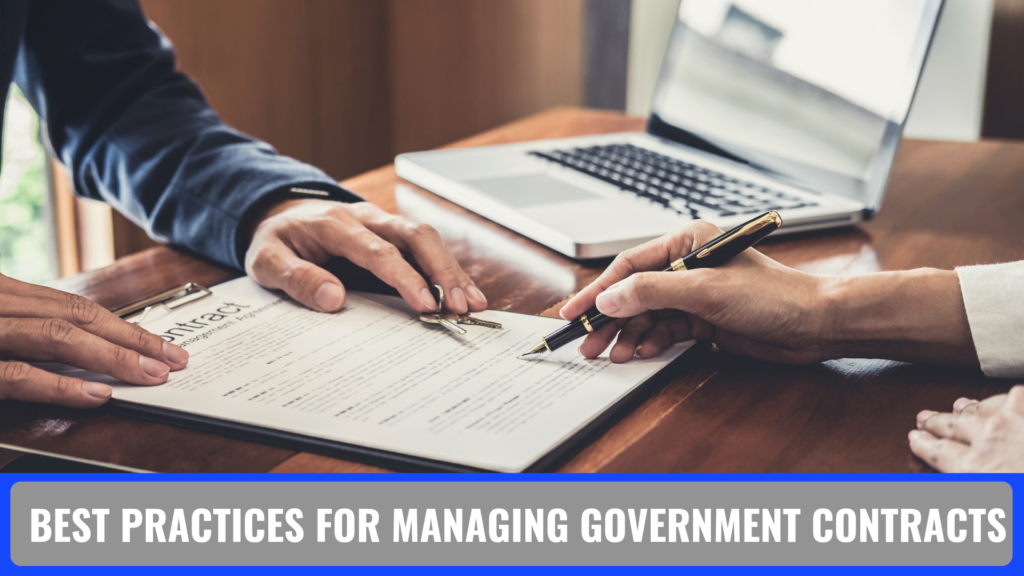
Understand the Contract:
Before starting any project, it is essential to understand the contract terms and conditions. Read the contract, the scope of work, deliverables, timelines, and performance expectations. Familiarize yourself with any special provisions or requirements specific to government contracts
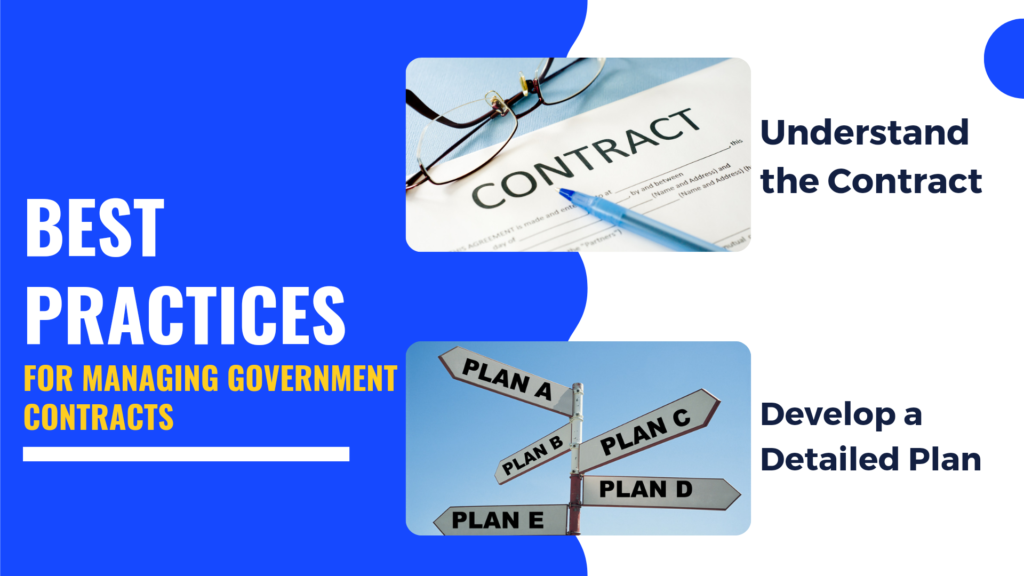
Develop a Detailed Plan:
Create a detailed project plan that outlines the tasks, responsibilities, and timelines. Break down the project into manageable phases and establish clear milestones. Assign duties to team members and define their roles. A well-structured plan will help you stay organized and ensure that the project progresses.
Communicate Effectively:
Effective communication is vital throughout the contract management process. Keep talking openly and honestly with everyone involved, like government people, project team members, and subcontractors. Convey project updates, issues, and changes. Regularly update all parties on the project’s progress, milestones achieved, and any potential challenges or risks.
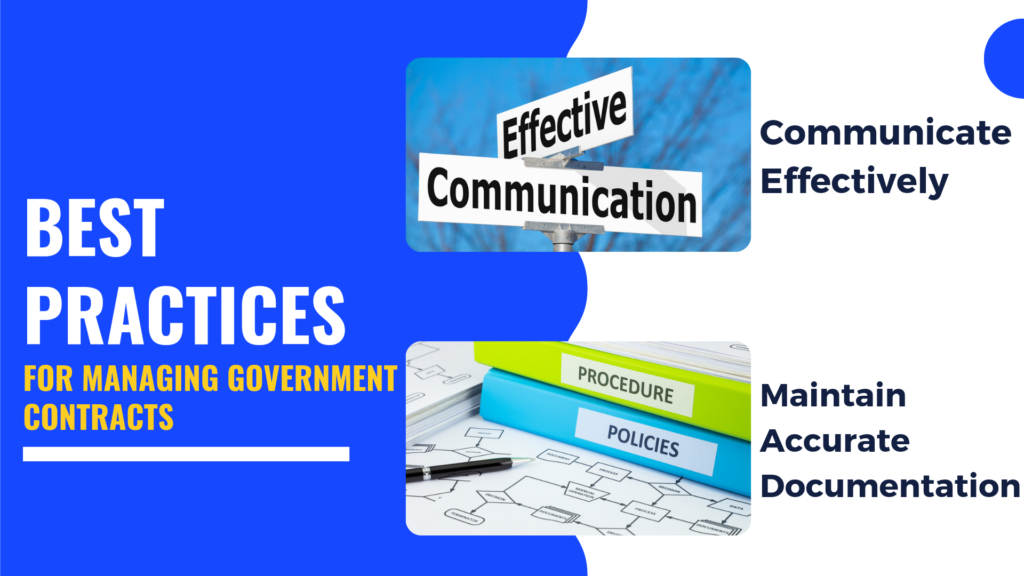
Maintain Accurate Documentation:
Accurate documentation is essential for managing government contracts. Keep records of all communications, agreements, project plans, change requests, and other relevant documents. Documenting project progress, expenses, and changes helps ensure transparency and enables easy tracking of project activities and milestones.
Monitor Performance:
Regularly monitor the performance of both your team and subcontractors. Establish key performance indicators (KPIs) to evaluate progress and quality of work. Conduct periodic reviews to assess if the project is meeting the contractual requirements. Address any performance issues promptly to avoid delays or cost overruns.
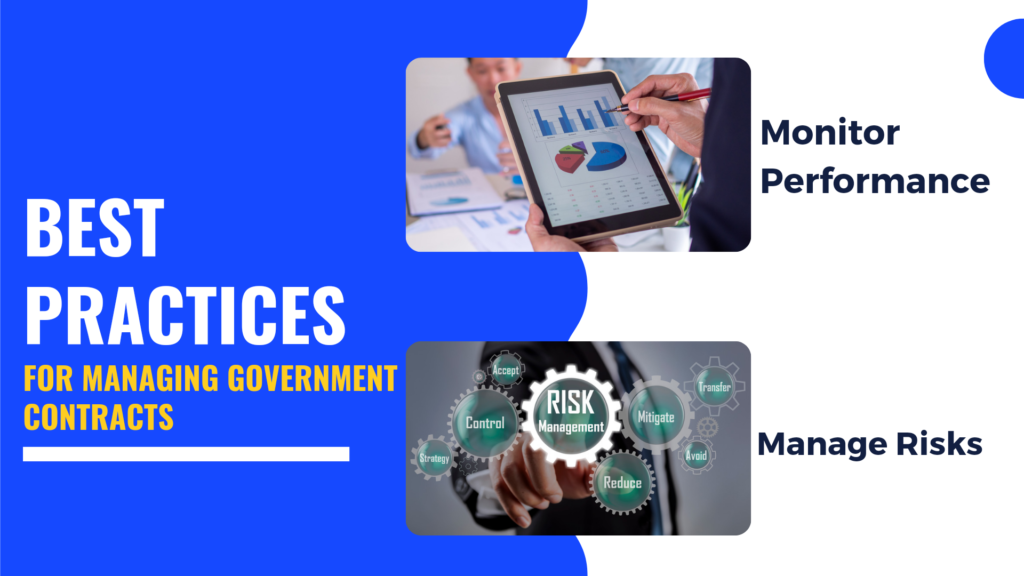
Manage Risks:
Identify potential risks and develop a risk management plan. Analyze the impact and likelihood of each risk and develop mitigation strategies. Regularly review and update the risk management plan throughout the project’s lifecycle. Being proactive in risk management helps minimize disruptions and ensures the project stays on track.
Regulatory and Legal Requirements:
Government contracts often have specific regulatory and legal requirements that must be followed. Ensure compliance with all applicable laws, regulations, and standards. Stay updated on any changes in rules that may affect the project. Non-compliance can lead to penalties, contract termination, or damage to your reputation.
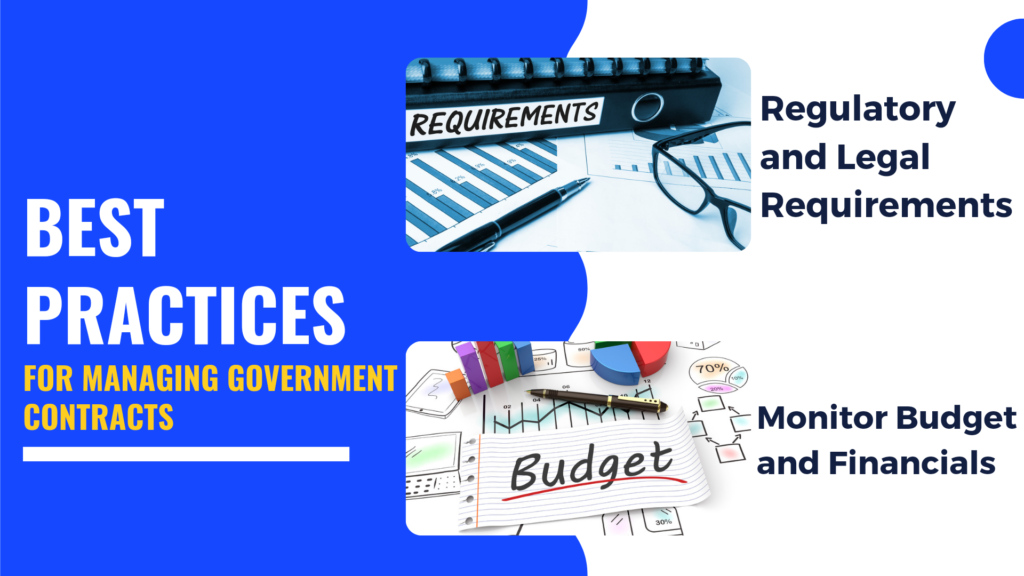
Monitor Budget and Financials:
Establish a robust financial management system to monitor project expenses, budgets, and invoicing. Keep track of the project’s costs, revenue, and cash flow. Regularly review financial reports to ensure the project remains within budget. Proper financial management will help you avoid cost overruns and maintain a healthy financial position.
Maintain Good Relationships:
Nurture positive relationships with all stakeholders involved in the project, including government officials, subcontractors, and suppliers. Collaborate and address concerns in a timely and respectful manner. Building strong relationships can lead to future contract opportunities and enhance your reputation in the industry.
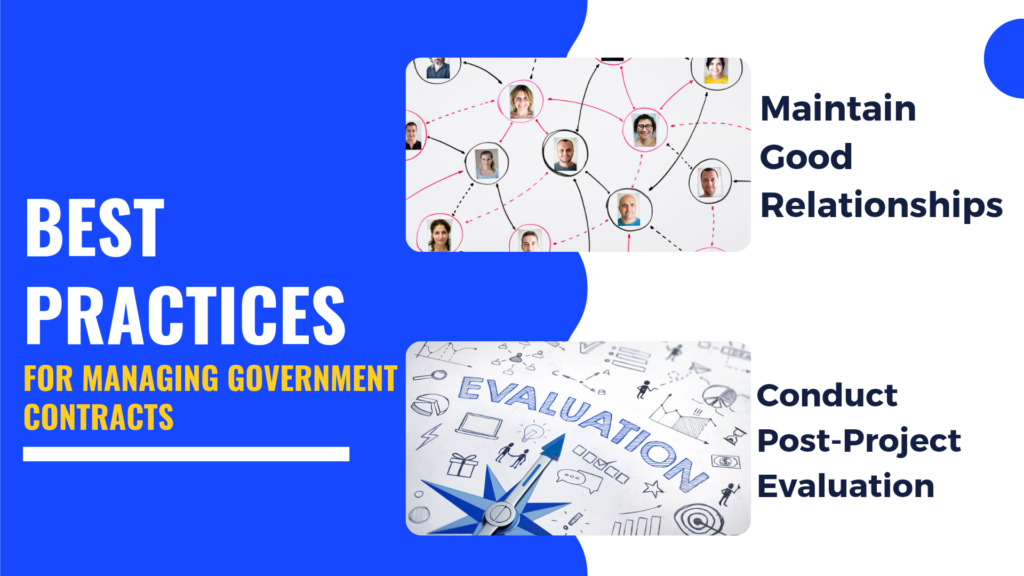
Conduct Post-Project Evaluation:
Once the project is complete, conduct a comprehensive evaluation to assess its success and identify areas for improvement. Gather feedback from all parties involved and analyze the project’s overall performance. Learn from the experience to enhance future contract management practices.
Conclusion:
Managing government contracts requires careful planning, effective communication, and adherence to contractual and legal obligations. Following these best practices can enhance your chances of successfully executing government contracts. Remember to stay organized, communicate openly, and monitor project performance diligently. Continuous improvement and learning from each project will help you refine your contract management skills and contribute to your professional growth.
Isaac's Closing Questions
1. What are some key strategies or tools that can help government agencies effectively monitor and ensure compliance with contract terms and conditions?
2. In your experience, what are the most common challenges faced by government organizations when it comes to managing contracts, and what steps can be taken to overcome them?

